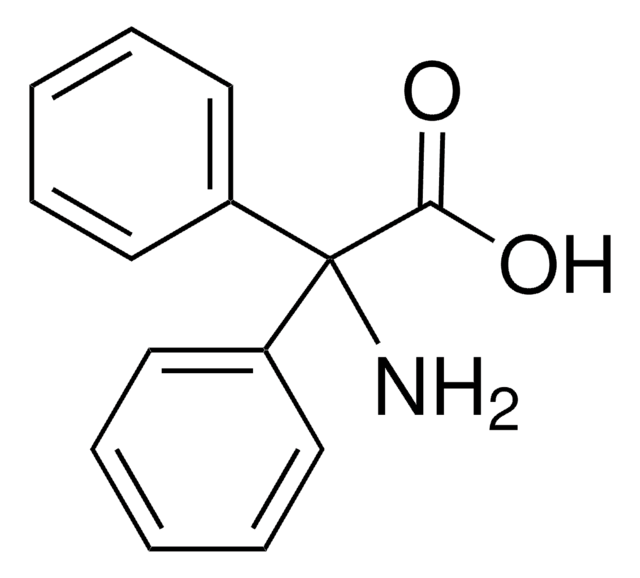1535008
USP
Phenytoin
United States Pharmacopeia (USP) Reference Standard
Synonym(s):
5,5-Diphenylhydantoin, 5,5-Diphenyl-2,4-imidazolidinedione, Phenytoin
About This Item
Recommended Products
grade
pharmaceutical primary standard
API family
phenytoin
manufacturer/tradename
USP
mp
293-295 °C (lit.)
application(s)
pharmaceutical (small molecule)
format
neat
SMILES string
O=C1NC(=O)C(N1)(c2ccccc2)c3ccccc3
InChI
1S/C15H12N2O2/c18-13-15(17-14(19)16-13,11-7-3-1-4-8-11)12-9-5-2-6-10-12/h1-10H,(H2,16,17,18,19)
InChI key
CXOFVDLJLONNDW-UHFFFAOYSA-N
Gene Information
human ... SCN10A(6336) , SCN11A(11280) , SCN1A(6323) , SCN2A(6326) , SCN3A(6328) , SCN4A(6329) , SCN5A(6331) , SCN7A(6332) , SCN8A(6334) , SCN9A(6335)
Looking for similar products? Visit Product Comparison Guide
General description
Application
- Phenytoin Sodium
- Phenytoin Chewable Tablets
- Phenytoin Oral Suspension
- Phenytoin Sodium Injection
- Extended Phenytoin Sodium Capsules
- Phenytoin Compounded Topical Gel
- Fosphenytoin Sodium Injection
Biochem/physiol Actions
Analysis Note
Other Notes
related product
Signal Word
Danger
Hazard Statements
Precautionary Statements
Hazard Classifications
Acute Tox. 4 Oral - Carc. 2 - Repr. 1B
Storage Class Code
6.1C - Combustible acute toxic Cat.3 / toxic compounds or compounds which causing chronic effects
WGK
WGK 3
Certificates of Analysis (COA)
Search for Certificates of Analysis (COA) by entering the products Lot/Batch Number. Lot and Batch Numbers can be found on a product’s label following the words ‘Lot’ or ‘Batch’.
Already Own This Product?
Find documentation for the products that you have recently purchased in the Document Library.
Customers Also Viewed
Our team of scientists has experience in all areas of research including Life Science, Material Science, Chemical Synthesis, Chromatography, Analytical and many others.
Contact Technical Service












